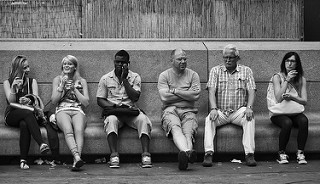Written By: Andrea Cornell
The concept of “self vs. other” It is one of the most important milestones in our emotional and social development. Early on children tend to associate so strongly with a parental figure that the line between child and parent is often blurry in the infant and child’s mind. However, as time passes our experiences teach us a sense of “self” and the indescribable feeling of being our own person. Another crucial aspect of the process of individuating is identifying where we belong. We assign labels based on our family, our backgrounds, our appearances, our language, where we live, what we do, etc. This tendency to involuntarily categorize is a powerful mechanism. By labeling ourselves, surroundings, and others we navigate our complex societies and, hopefully carve out a place for ourselves with our identities.
There are however some difficult stages in these developments of our psyche and our identity. When trauma occurs in the earliest stages of life, the experience of suffering between a parent and a child is shared and the pain can be felt through one another. Deep associations with love and caretaking can become embedded with pain and negative emotions. In our identity sometimes we also develop a relationship with the sense of “other.” It can be a healthy rivalry amongst competing sports fans, or as serious as racism and xenophobia. In our everyday lives we are constantly engaging in this categorization. We tend to avoid holding paradoxes in our minds and feelings, but in the right context it can be healthy to let go of our categorizing tendencies and just allow ourselves to be around others. While completely abandoning any categorization seems impractical, an occasional break from “self vs. other” and “us and them” may bring a sense of relief.


